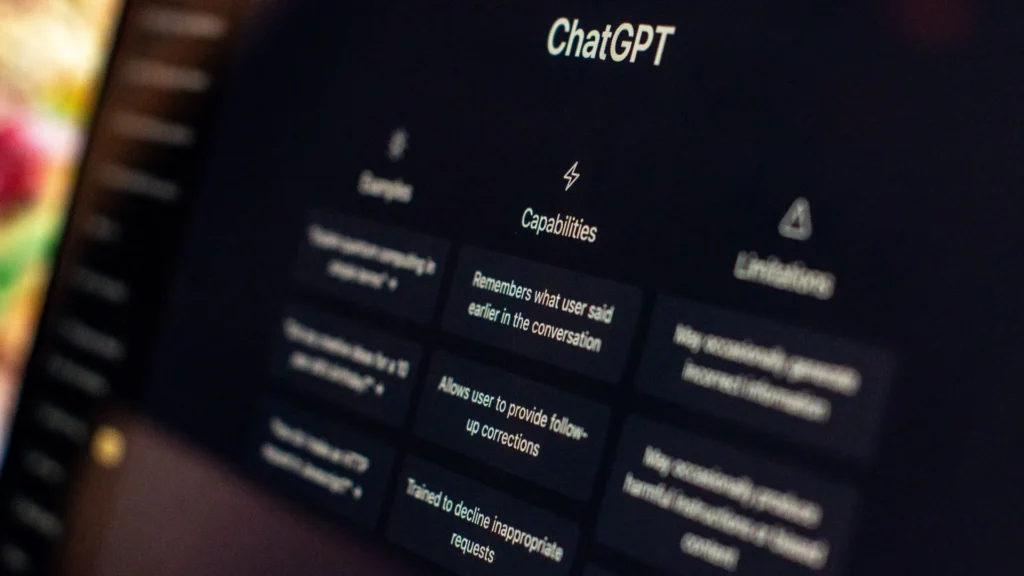The technological landscape is evolving at an unprecedented pace, with artificial intelligence (AI) playing a pivotal role in various domains, including education. OpenAI’s recent launch of a study mode for ChatGPT is a noteworthy development, positioning the AI tool as a potential ally in the learning process. This new feature aims to enhance student engagement by throwing questions back at users, prompting them to think critically rather than merely providing answers. However, it raises significant questions about its effectiveness in addressing the broader crisis posed by generative AI in education.

As generative AI becomes increasingly integrated into educational settings, the implications of its use are profound. While tools like ChatGPT can foster a more interactive learning experience, they also contribute to challenges such as academic dishonesty, reliance on technology over critical thinking, and the potential erosion of traditional educational values. This article will delve into the features of ChatGPT’s study mode, explore its implications for the education sector, and discuss whether it can genuinely mitigate the ongoing AI crisis in education.
Understanding ChatGPT’s Study Mode
ChatGPT’s study mode is designed to enhance the learning experience by encouraging students to engage more actively with the material. By asking probing questions, ChatGPT aims to guide students toward finding answers themselves rather than providing them directly. This approach aligns with educational theories that emphasize critical thinking and self-directed learning.
Key Features of the Study Mode
- Interactive Questioning: ChatGPT poses questions related to the subject matter, prompting students to reflect and reason.
- Personalized Learning: The study mode adapts to individual learning styles and paces, catering to diverse educational needs.
- Feedback Mechanism: Students receive feedback on their responses, facilitating a deeper understanding of the material.
The Impact of Generative AI on Education
Generative AI technologies, such as ChatGPT, have the potential to revolutionize education. However, their integration has raised serious concerns about their broader impact. The ease with which students can access information can lead to a dependency on AI tools, diminishing their ability to engage with material critically.
Concerns About Academic Integrity
One of the most pressing issues surrounding the use of generative AI in education is academic integrity. With AI capable of generating essays, solving problems, and even taking tests, there is a growing concern that students may resort to using these tools to bypass traditional learning processes. The implications for academic honesty are significant, as reliance on AI-generated content can lead to a lack of original thought and understanding.
The Shift in Learning Dynamics
The introduction of AI tools creates a shift in the traditional learning dynamics. Students may come to rely on AI for immediate answers, which can hinder their ability to engage with complex subjects. The critical skills of analysis, synthesis, and evaluation may deteriorate if students continuously seek shortcuts to knowledge rather than investing time in understanding concepts.
Can Study Mode Address the AI Crisis?
While ChatGPT’s study mode offers an innovative approach to learning, whether it can effectively address the challenges posed by generative AI remains uncertain. The feature encourages active engagement but does not fundamentally alter the dynamics of how students interact with learning materials.
The Role of Educators
For AI tools like ChatGPT to be effective in the classroom, educators must play a crucial role. Teachers can integrate study mode into their curricula, using it as a supplementary tool rather than a primary source of information. This approach ensures that students learn to use AI responsibly and effectively while still engaging with traditional educational methods.
Balancing Technology and Traditional Learning
Finding a balance between technology and traditional learning methods is essential. Educators and institutions must develop strategies that incorporate AI tools while maintaining the integrity of the educational experience. This may include creating guidelines for AI usage, emphasizing the importance of original thought, and fostering an environment that values critical thinking.
Important Points to Consider
- ChatGPT’s study mode encourages critical thinking by asking questions.
- The tool can adapt to individual learning styles, promoting personalized education.
- Academic integrity is at risk due to the ease of access to AI-generated content.
- Educators must play an active role in integrating AI tools into the classroom.
- Finding a balance between AI technology and traditional learning is crucial for effective education.
FAQs About ChatGPT’s Study Mode and Education
1. What is ChatGPT’s study mode?
ChatGPT’s study mode is a feature designed to enhance learning by asking students questions, encouraging them to think critically and engage with the material actively.
2. How does study mode differ from traditional AI interactions?
Unlike traditional interactions where students receive direct answers, study mode promotes active engagement by prompting students to reflect and respond to questions.
3. Can study mode help with academic integrity issues?
While study mode encourages critical thinking, it does not directly address issues of academic integrity. Educators must establish guidelines for responsible AI use.
4. How can educators effectively implement study mode in the classroom?
Educators can incorporate study mode as a supplementary tool, guiding students on how to use it responsibly and emphasizing the importance of original thought.
5. What are the potential drawbacks of using AI in education?
Potential drawbacks include a decline in critical thinking skills, increased reliance on technology, and challenges related to academic integrity.
Conclusion
OpenAI’s new study mode for ChatGPT represents a significant step toward enhancing the educational experience by promoting critical thinking and engagement. However, it does not fully address the underlying challenges posed by generative AI in education. As the landscape of learning continues to evolve, it is essential for educators, students, and institutions to navigate the complexities of AI integration thoughtfully. The balance between utilizing innovative technology and maintaining traditional educational values will be crucial in shaping the future of learning. While ChatGPT’s study mode has the potential to enrich the learning experience, its success in solving the AI crisis in education will ultimately depend on how it is implemented and embraced within the broader educational framework.
📰 Original Source
Este artigo foi baseado em informações de: https://www.wired.com/story/chatgpt-study-mode/



